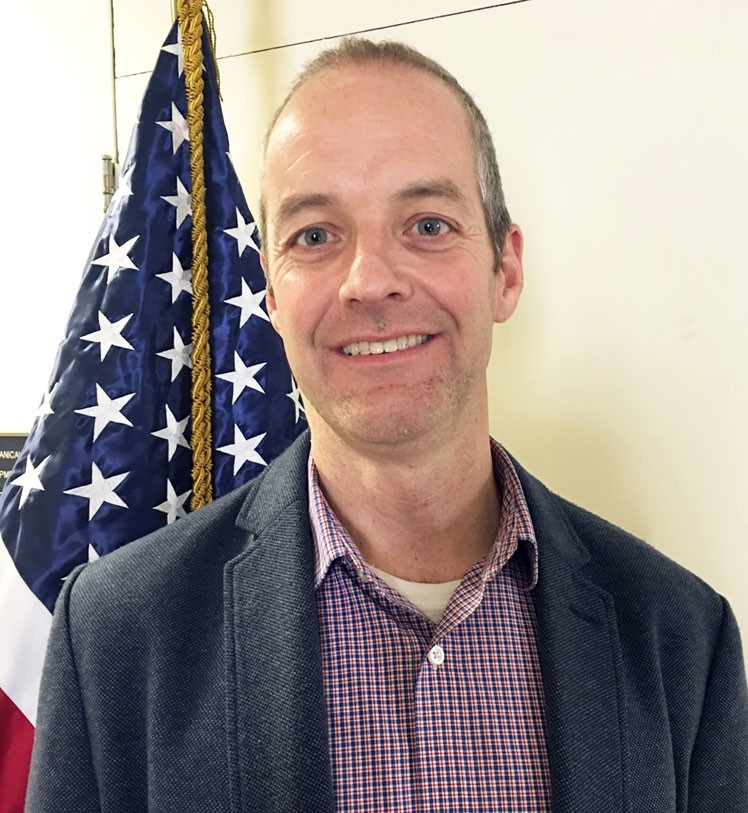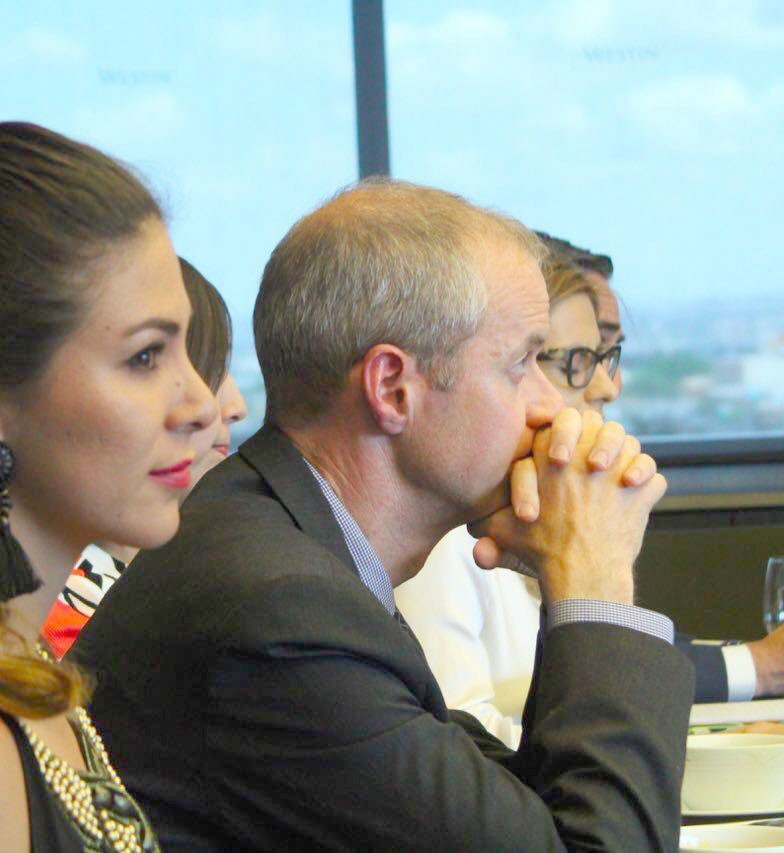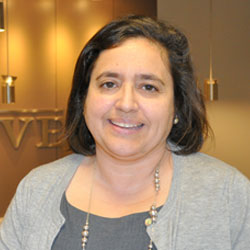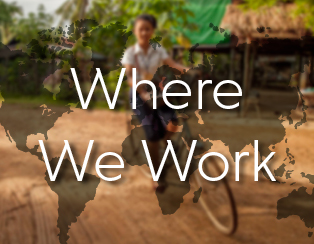Ask the Experts: The rule of law in Latin America
By Jenny Murphy, Creative Senior Rule of Law AdvisorFebruary 1, 2018
Insights from Don Chisholm, Director of the Justice and Citizen Security Office at USAID Mexico.

The rule of law can be easily shaken when the justice sector is unable to deliver services, when criminal groups wield political influence, when citizen security is threatened or when corruption undermines governments.
Many countries struggle when these issues compound and feed into one another, causing an overall deterioration in the rule of law.
For example, facing low marks in criminal justice, constraints on government powers, corruption and other factors, Venezuela ranks the last of the 113 countries surveyed in the World Justice Project’s 2017-2018 Rule of Law Index.
Region-wide, 16 of the 30 indexed countries Latin America and the Caribbean fall in the bottom 50 percent globally. The factors across which Latin American and Caribbean countries struggle most include order and security, criminal justice and civil justice.
To talk more in-depth about the unique rule of law challenges facing Latin America and the Caribbean, I spoke with Don Chisholm, Director of the Justice and Citizen Security Office at the U.S. Agency for International Development in Mexico.
The following are excerpts of our exchange, the second part in a series of interviews with fellow rule of law experts and practitioners. To read the first part, an interview with Hamid Khan, Deputy Director of the Rule of Law Collaborative at the University of South Carolina, click here. To learn more about Creative’s Rule of Law work, click here.
Murphy: For a number of years, USAID, bilateral and multilateral donors have discussed rule of law trends. What do you see as trends of rule of law in Latin America?
Chisholm: I see the most important rule of law trend in Latin America being how to address impunity. The criminal justice reforms that swept through Latin America 20 to 25 years ago were mainly an expression of the increasing concern for human rights in the region. However, with the growing criminality over the last 15 years, the inability of the justice sector to deal with it, and the higher expectations of the citizens, impunity has become the foremost concern, and how to deal with it the most urgent need of the justice sector.
Murphy: How do these trends impact the design of programs moving forward?
Chisholm: It has several impacts. The term impunity needs to be defined and this requires a lot of input from many sides – from the host country, from NGOs, and from international partners. We should have programs that are specifically built to help our counterparts address impunity, while, of course, ensuring that they don’t roll over due process guarantees. Also, more than ever before, we need to look beyond our government counterparts and seek out other stakeholders who suffer from impunity or otherwise are eager to contribute; whether civil society, the private sector, academia or political parties.
“Without understanding the local culture and dynamics, we fall into the trap of trying to impose models that have worked elsewhere.”
Murphy: What is the role of justice service delivery toward rule of law development?
Chisholm: Sometimes, we think of impunity and the effectiveness of the justice sector only in terms of grand corruption, homicides, femicides, disappearances, extrajudicial executions, and other crimes that shock the conscience. However, far more important to citizens in their daily lives may be lower-level pervasive crime, such as simple assaults and robberies. In many cases, if the justice sector can’t deliver on addressing these quality-of-life crimes, it will take a significant toll on its legitimacy and, ultimately citizen perception of the strength of the rule of law.
Murphy: Why is understanding local culture so important for rule of law development?
Chisholm: Without understanding the local culture and dynamics, we fall into the trap of trying to impose models that have worked elsewhere. We have seen this at times in Latin America. An example would be the use of plea bargaining, a tool which is widely used in the U.S. and an essential part of the functioning of our justice system. However, given the history and presence of corruption in the justice sector in Latin America, the idea of prosecutors and public defenders reaching agreements (as opposed to fully litigating cases) raises a lot of concerns about fundamental fairness for citizens.
Obviously, what works in the U.S. may not work elsewhere. USAID and its implementing partners, both loaded with local expertise, are ideally positioned to ensure that local culture and dynamics are an inherent part of our rule of law programming. Our intimate knowledge of the local political dynamics, culture, and history allows us to operate successfully in what is essentially a political field.

Murphy: How do rule of law and crime and violence prevention overlap?
Chisholm: I think the biggest point of overlap between the two is in the area of juvenile justice. For instance, where countries have effective juvenile justice systems, young offenders are sent to jail. If they have access to cognitive behavioral therapy and vocational training while in jail – the hallmarks of crime and violence prevention programs – studies have shown that they’re far less likely to commit crimes once they’re out of jail. So functioning together effectively, the rule of law and crime and violence prevention mechanisms can pull youth criminals off of the streets and then make it far less likely they’ll continue being criminals.
Murphy: What can government and civil society groups do to support rule of law in challenging environments?
Chisholm: This question acknowledges the limits of being able to promote the rule of law where, for instance, government and civil society actors are in danger because of their efforts. This was the context I saw on a trip to a Western African country almost 10 years ago. Given the violence between different competing groups in that country, no prosecutors wanted to tackle sensitive cases that went to the core of this violence. However, I noticed after sitting in a day of hearings in the criminal courts that the justice sector was effectively dealing with intra-family violence cases. It made sense – none of these cases touched upon the interests of the elite.
The lesson learned for me was that we should look for opportunities to support the government and civil society in challenging environments wherever they can work, even if it doesn’t seem like it will immediately have a significant impact. Small, incremental improvements are an important piece of the puzzle to generate larger-scale sustainable impact.

Murphy: What do you predict will be the biggest challenge to rule of law development around the globe in the next three to five years?
Chisholm: The independence of justice sector institutions is critical for the success of justice systems that can investigate, prosecute, and adjudicate crimes against anyone, regardless of their wealth, power, or position. Justice systems throughout the world struggle to carve out and maintain this independence.
In many places in Latin America, the penetration of justice sector institutions by organized crime or the sway held over these institutions by the political elite make independence difficult. Given the fragility of these institutions and the growing lack of confidence in them by citizens, I think efforts to build or retain this independence will be even more difficult and will need sustained engagement of civil society and private sector actors.


